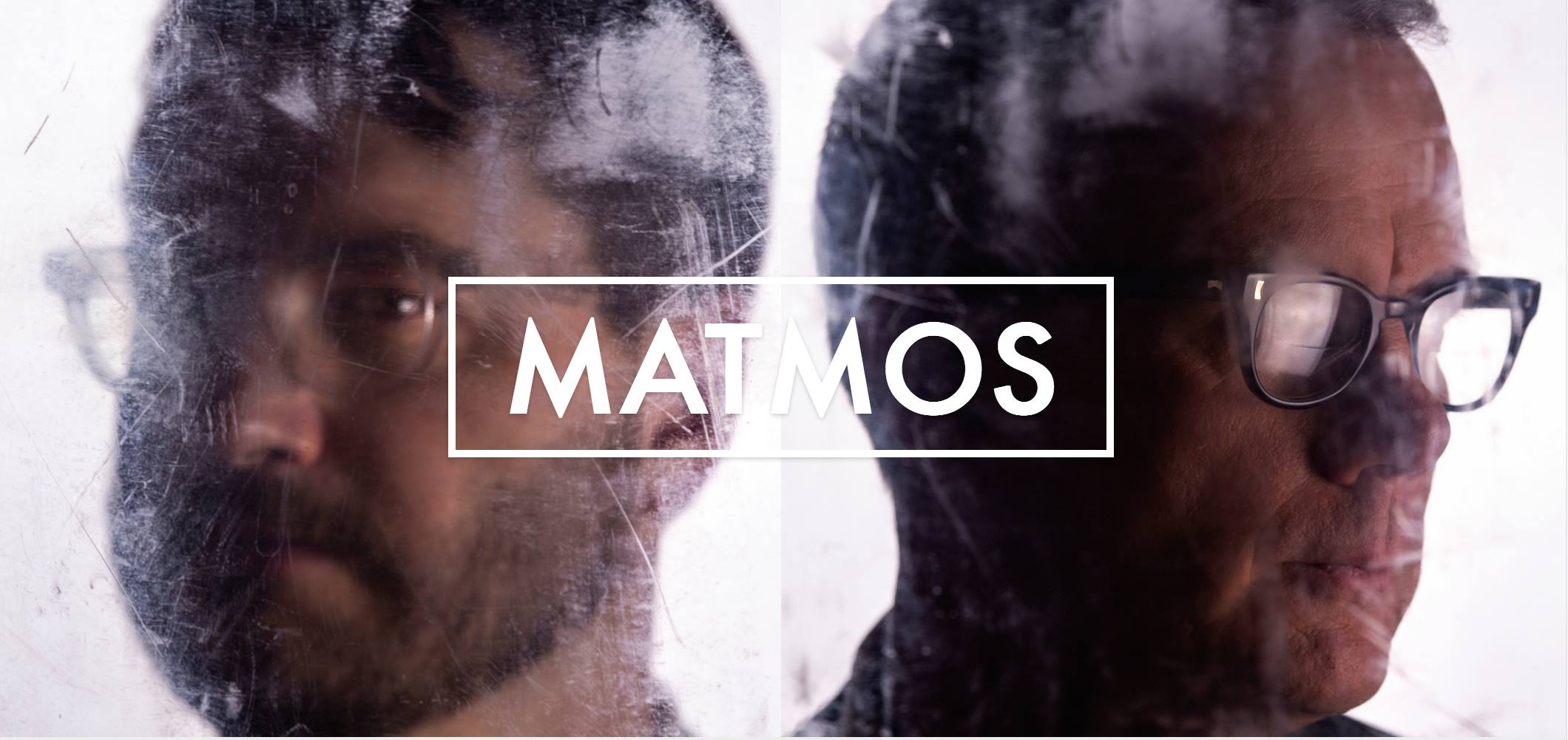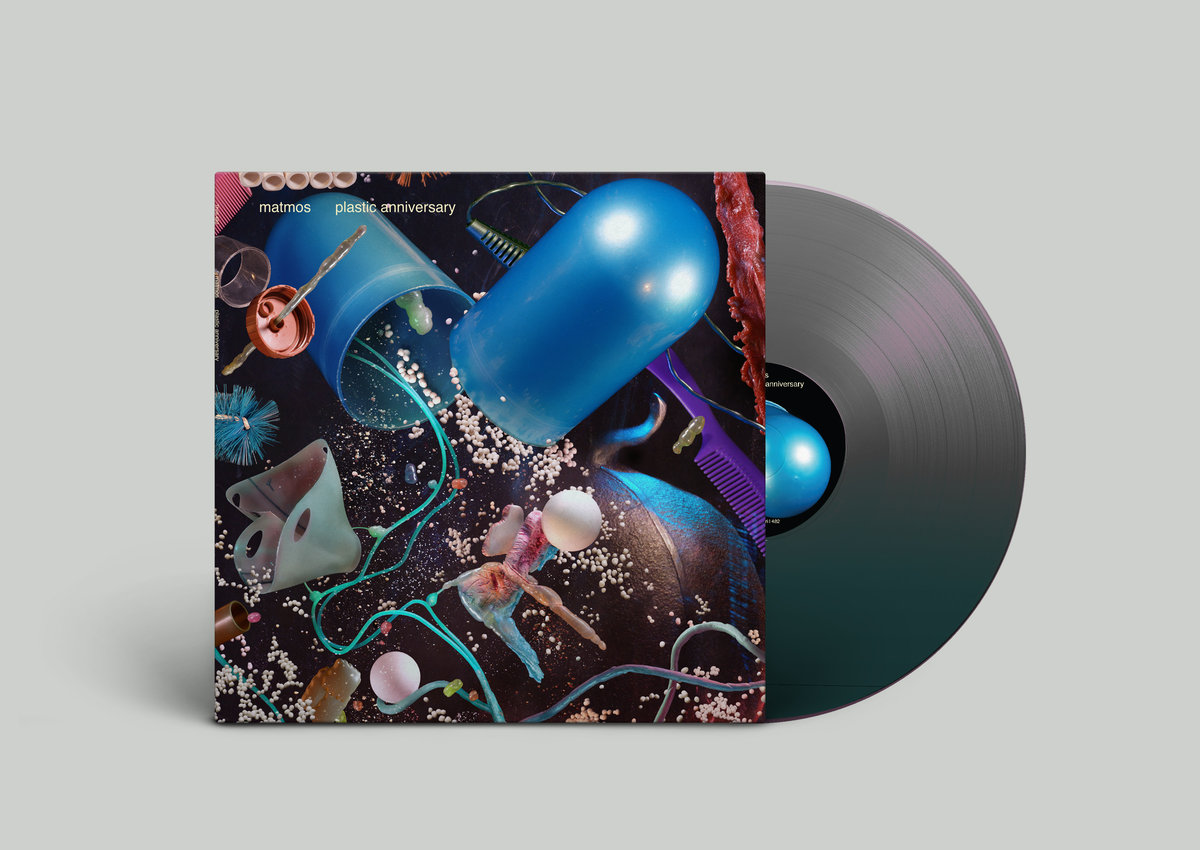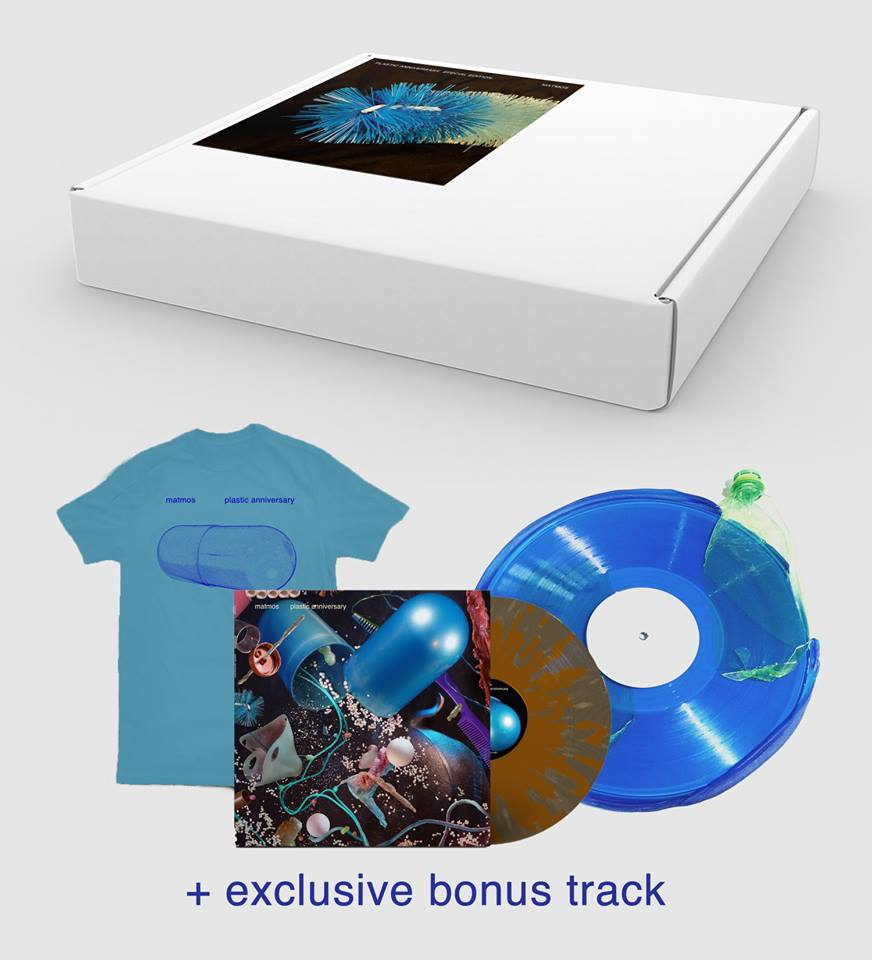MATMOS Offers Deluxe Edition For Upcoming Plastic Anniversary LP
The latest release from the Baltimore duo derives it’s sound samples entirely from one sound source: plastic. Listen to the first single & preorder now

For being such a consistently innovative and forward thinking unit, it’s a shame how under recognized the Baltimore-based electronic duo, Matmos, continues to be. Since their name is often known to draw a blank, I’ve become accustomed to mentioning their work on Bjork‘s now-classic Vespertine album, for reference — the pair even programmed the first single on the Icelandic songstress’s Medúlla LP and performed on the Verspertine and Greatest Hits tours. But while credentials like these are impressive, it’s the prolific amount of work that Martin C. Schmidt and Drew Daniel have pumped out on their own, since forming the project in San Francisco 25 years ago, that has, arguably, proven the most interesting.
In 2001 — the same year that Vespertine dropped — Matmos released A Chance to Cut is a Chance to Cure, an album that incorporated samples from various surgical instruments and procedures ranging from liposuctions to bonesaws. Prior to that, the electronic masterminds were already breaking new ground with albums like The West [1999], which came out while they were still residing in the Bay Area and incorporates live instrumentation throughout. The West was born during a time where a lot of people were coming into town for their mutual friends’ wedding, and, in exchange for letting the travelers crash at their place, they recruited them to play things like guitar or banjo to be used in the final product. They later convinced David Pajo (Slint, Tortoise, etc) to send them a DAT full of material which was also mixed in. A breakout of sorts, at a time when they were still defining what Matmos was to become, The West presented a version of electronic folk that predates influential work by fellow pioneers like Four Tet, whose groundbreaking “folktronica” debut, Pause, wasn’t released until 2 years later.
The high concept releases continued with The Civil War, which mashes early Americana and military sounds with electronica, while playing with themes of The American Civil War and the English Civil War of the 16th century. The obscure sampling also remained, as did the live instrumentation, incorporating everything from the bassoon, dobro, tuba and hurdy gurdy, to a sewer pipe and Buchla modular synthesizer, while bringing in collaborators such as David Grubbs (Squirrel Bait, Bastro, Gastr del Sol, Codeine) and Mark Lightcap (Acetone). The Rose Has Teeth In The Mouth Of A Beast featured cameos by Bjork; Antony Hegarty/Anhoni; Stephen Thrower of Coil; and frequent collaborator, John “Wobbly” Leidecker (Negativland). Each song paid tribute to a particular gay or lesbian figure that inspired the group — Martin and Drew are, actually, a couple, themselves. Constructed out of parapsychological, ESP, and sensory deprivation experiments that they conducted on test subjects, 2013‘s A Marriage Of True Minds was another ambitious project, but their last album, Ultimate Care II (2016), employed one of their most basic, yet fascinating approaches to composition, yet. Named after the model of Whirlpool brand washing machine that they recorded in their basement, all of the sounds on the LP were derived by sampling that appliance, and were then manipulated with samplers, software and outboard processing. Even more impressive is the fact that, to support that tour, they were traveling and performing with the washing machine live on stage. The concepts are always intriguing, but what has made Matmos so great is that their ideas don’t strictly read well on paper; these inspirations are simply jumping off points guiding them toward genuinely impressive albums with often beautiful and refreshing results. Imposing such restrictions amplifies the creativity and resourcefulness of what they do. The quirky ideas behind them simply provide another dimension to these projects; never reduced to a one-note gimmick.
Matmos is slated to release their latest studio album, Plastic Anniversary, on March 15. Much like their last effort, the entire project is built off of samples from one specific sound source: plastic. The materials mined for these recordings include bakelite dominos, Styrofoam coolers, polyethylene waste containers, PVC panpipes, pinpricks of bubble wrap, LEGO bricks, and synthetic human fat. The press release promises a “surprising cast of guest musicians” to accompany them on this journey, adding: “Members of the horn and drumline sections of the Whitefish Highschool Bulldogs from Whitefish, Montana were recruited by Matmos and persuaded to take part in recording sessions at Snowghost Studios where they played objects sourced from a nearby recycling center, including massive plastic garbage bins. This was later combined with additional plastic percussion performances by Greg Saunier, a drummer known for his hyper-expressive, mercurial playing as a founding member of the band Deerhoof.”
So far, we have received our first sample of what’s to come in the form of a track called “Silicone Gel Implants.” Just as the title implies, this one samples a breast implant. Check it out below.
If plastic seems like somewhat of a broad inspiration/source for an album — especially, when compared to surgical tools or a washing machine — the fact that it’s Matmos should be enough of an indicator that there are multiple levels to this thing. While the variety of sounds that they are able to draw from and present directly reflects the versatility and range of the material in its various incarnations, it’s also an attempt at recycling,salvaging, and advancing the conversation regarding the waste that we produce as a species.
Of the final two tracks on the album, the press info reads as follows:
Since plastic was described by its first developers as a “fourth kingdom” beyond animal, vegetable, and mineral, this track [“The Fourth Kingdom”] heralds the eventual collapse of the political economy that birthed the oceans of garbage that now choke our world. Thinking the dystopian consequences of plastic through to their post-human conclusion, the final track, “Plastisphere” sounds like a field recording of insects and birds and pattering rain and ocean waves, but is in fact a work of digital sleight of hand: every single sound on this track has been artificially constructed out of samples of bubble wrap, Velcro, plastic bags and straws and, tellingly, an emergency stretcher. After a volatile and vibrant suite of poppy plastic electronics, Plastic Anniversary ends in an acknowledgement of the planetary price yet to be paid.
Pe-orders for Plastic Anniversary are already available through Thrill Jockey and each of the physical formats for the release further this theme of sustainability, including a fairly unique deluxe edition box set that we have our eyes on. Details and images can be found below below.
CD packaged in mini-LP style gatefold jacket made of 100% recycled material, with 6-panel booklet printed on ethically sourced paper.
LP packaged in jacket made of 100% recycled material, with artworked inner sleeve printed on ethically sourced paper. Pink & green mashup color reground vinyl available is a mail order exclusive.

Deluxe edition box set will come with a sculptural album, embedded with plastic bottles, that while is the actual album, is rendered virtually unplayable by the plastic floating within. Each copy is signed by the band. This edition also includes the album on an exclusive multicolor mashup vinyl, a t-shirt (size large), and a bonus track, all exclusive to the box. All proceeds from this special edition will benefit The Ocean Cleanup.
